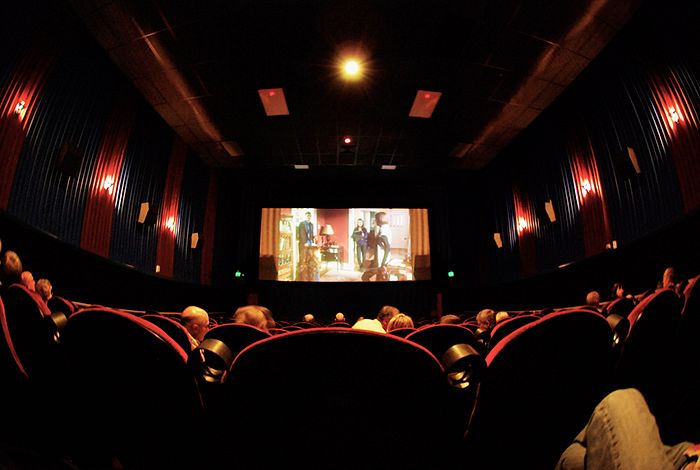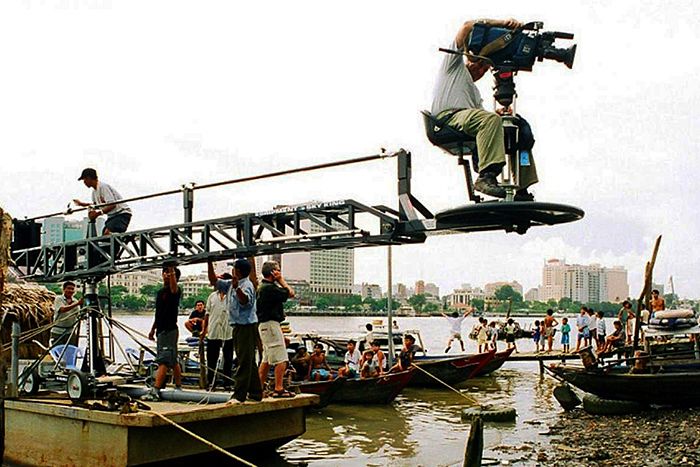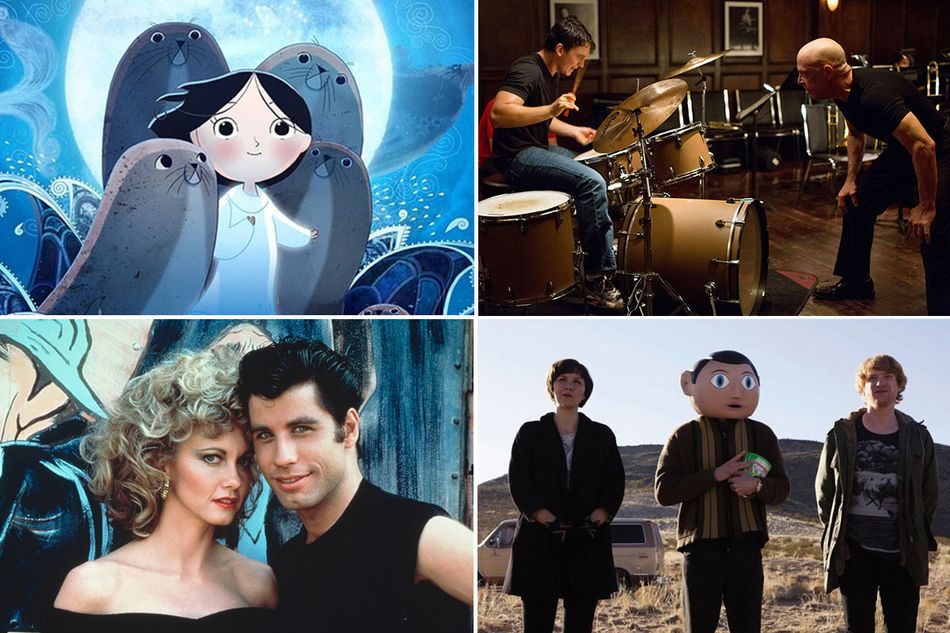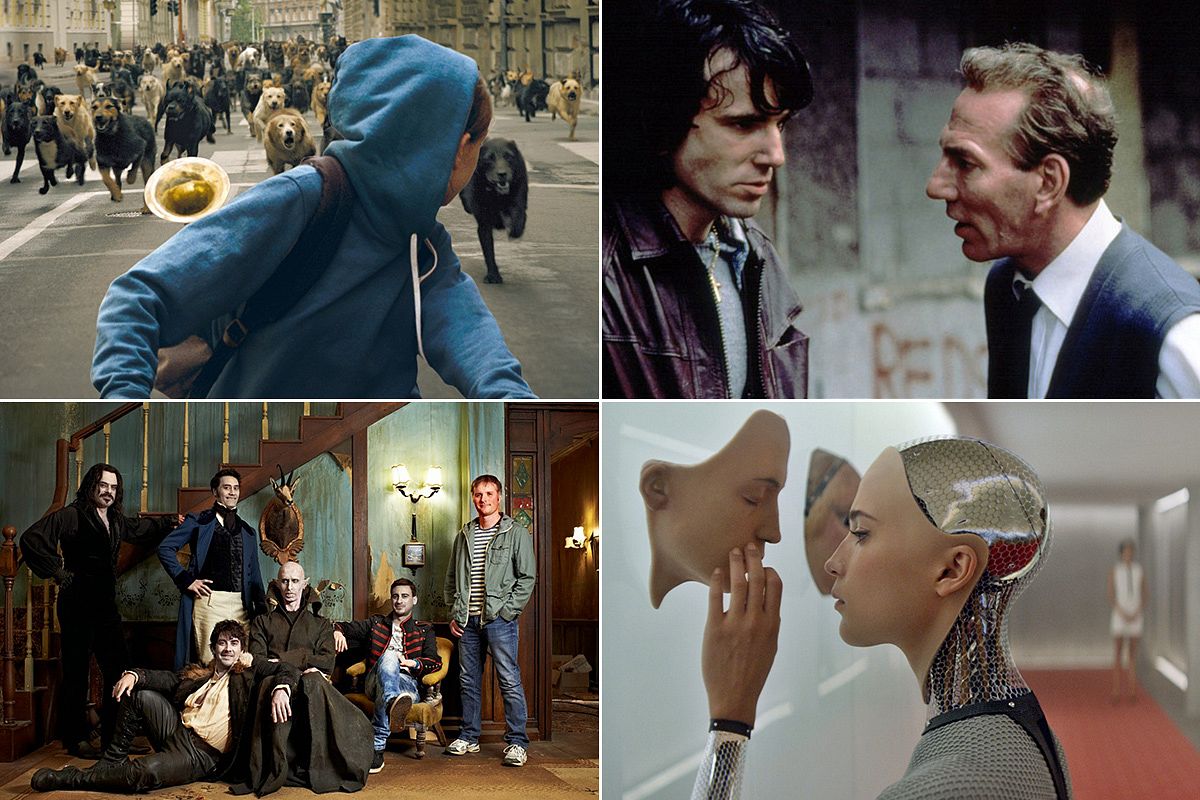Dinosaurs, androids, socio-political documentaries and juicy indie films from around the world make up this month’s menu at Saigon’s alternative film venues.
1st July @ 8pm – deciBel Lounge
A Girl Walks Home Alone at Night (USA 2014)
The first Iranian-American romantic vampire flick, A Girl Walks Home Alone at Night is the first feature film by Ana Lily Amirpour. In an imaginary Iranian underworld, a young and thoughtful girl (played by Sheila Vand - Argo) roams the dark streets of Bad City, a decaying industrial city populated by scoundrels, drug addicts and loners. The girl’s true nature is soon revealed as a sort of vampire vigilante, whose disgust for what has happened to humanity is only overcome when she meets the goodhearted, good-looking (and cat-lover) Arash (played by Arash Marandi). Amirpour has surely given us an unusual vampire heroine and a stylish film enhanced by a Jarmush-like soundtrack. If you’ve never heard of the bands Kiosk and Radio Tehran, you’re going to love them after watching this film.
2nd July @ 8pm – Saigon Outcast
Mad Max: Fury Road (USA 2015)
At a time where film producers seem determined to destroy our childhood cult films, the Mad Max series sees a worthy addition to its saga. George Miller, who also directed the original two instalments of Mad Max, managed to gain the love and appreciation of both critics and audiences for his post-apocalyptic adventure film.
With the support of powerhouse performances by Tom Hardy and Charlize Theron, Fury Road is an action-packed film in which Imperator Furiosa (Theron) is chased across the desert after stealing something she should not have from a warlord. Although Max (Hardy) joins her in her quest, it is reinvigorating to see a female hero equal to her male counterpart.
Miller might have just shown action filmmakers that it is possible to combine explosions with well-developed characters and a solid storyline.
8th July @ 8pm – deciBel Lounge
Citizenfour (USA - Germany 2014)
Producer-director Laura Poitras took home a well-deserved Oscar last year for her extraordinary and brave documentary, Citizenfour.
One day, Poitras received a message from a mysterious user by the name Citizenfour informing her that he had some secret documents about American government surveillance that he wanted to leak to the press. In her documentary, Poitras takes a bold and objective approach in recording the eight-day interviews between Edward Snowden (Citizenfour) and The Guardian journalist Glenn Greenwald. Snowden revealed the massive electronic collection (through phone calls, e-mails and various electronic transactions) carried out by the NSA (National Security Agency), unbeknownst to the American public. Although Poitras does not analyse the implications of the subject matter, it reveals the difficulties that they had in making the documentary and the “bullying” The Guardian received when it broke the Snowden story. The documents provided by Snowden have had a true impact in the American judicial system, which was forced to review the illegal (as ruled by the Supreme Court) procedures applied in the name of National Security. Snowden is still in “forced exile” in Russia but it does not seem that his story will be forgotten any time soon, if for no other reason than Oliver Stone has a film, Snowden, almost in the can.
9th July @ 8pm – Saigon Outcast
Paris is Burning(USA 1990)
This year, The Sundance Film Festival restored and screened the ground-breaking LGBT documentary Paris is Burning to celebrate its 25th anniversary. Filmmaker Jennie Livingston spent almost eight years in the underground LGBT community in New York during the late 80s in order to document and capture the true essence of this then-unknown world.
Livingston entered the drug-queen world where she interviewed people at balls and competitions, allowing them to speak about their lives, fashion and social-situation for themselves.
Not surprisingly, the making of this documentary was not easy (especially from an economic point of view) but it gained immediate fanfare upon its release (winning the Grand Jury Prize at Sundance) and it still stands today as a landmark for other films on this subject.
15th July @ 8pm – deciBel Lounge
’71(UK 2014)
If ’71 were produced in Hollywood and Clint Eastwood had directed it, this would have been the most talked about war film last year, not the overly publicised American Sniper.
We are not saying that Sniper did not have its merit, but when it comes to depicting the psychological and emotional impacts that wars have on soldiers, ’71 offers a frightening and more realistic account. First-time feature director Yann Demange goes back to the beginning of The Troubles year, where a British soldier, Gary Hook, (played by a surprisingly good Jack O’Connell) is trapped behind enemy lines after a mission gone wrong. In those years, the red-bricked Belfast was more of a war-zone than an actual city and every person behind every corner was a potential enemy. The film creates a tense chase between Hook and pursuing IRA members and surprising double-crosses add to its suspense.
16th July @ 8pm – Saigon Outcast
Jurassic World (USA 2015)
Twenty-two years after the T-Rex petrified and stunned us in equal measures on the big screen, the dinosaurs are back in what has already been deemed the best sequel from the Jurassic saga. Jurassic World sees Chris Pratt (Guardians of the Galaxy) as a Velociraptor-tamer within the now successful tourist park situation on the Costa Rican island of Isla Nublar. As any good capitalist venture, the businessmen behind the park care more about keeping the tourists amused and finding sponsors than caring for the well-being of the animals and visitor safety. This leads to the creation of the genetically modified Indominus Rex (a mix of T-Rex and other ferocious types of dinosaurs). When Indominus manages to escape, it gives way to a series of action spectacles that only 21st century CGI dinosaurs could deliver.
22nd July @ 8pm – deciBel Lounge
Ex Machina (UK/USA 2015)
Author and screenwriter Alex Garland (28 Days Later, The Beach) makes his directorial debut with Ex Machina. A sci-fi in theme but a psychological thriller in execution, Ex Machina dives into one of the most intriguing topics of the genre: artificial intelligence.
In Garland’s film, however, this takes the form of a riveting (and unusual) sexualisation of the beautiful creations by genius Nathan Bateman (Oscar Isaac). The reclusive Nathan lives in a secret paradisiac location, whose natural beauty and lavish design are not enough to hide the eeriness of its owner. Nathan randomly recruits a computer programmer, Caleb (Domhnall Gleeson) to run a Turing test on one of his androids, Ava. Both the performances and the development of the three characters is what makes Ex Machina so intriguing since and keeps the audience wondering what the true motives of each and every one of them truly are.
29th July @ 8pm – deciBel Lounge
A Pigeon Sat on a Branch Reflecting on Existence (Sweden-Norway-France-Germany 2014)
A bunch of comically grotesque misfits populate the beige-and-cream-coloured world in the new film by Swedish director Roy Anderson. A Pigeon marks the last of Anderson’s trilogy (Songs from the Second Floor, You, the Living) about the human condition. Anderson is interested in tackling the core of what constitutes being human, but he does it in his own way: by mixing dreams, absurdity and black comedy.
His characters look more dead than alive (both physically and emotionally) and, through the non-linear and illogical narration, we see them go through dreadful, and often ignoble events that makes it hard to determine if we should feel pity or sympathy for them.
30th July@ 8pm – Saigon Outcast
Ai Weiwei: Never Sorry (USA – China 2012)
“I think that art is certainly the vehicle for us to develop any new ideas, to be creative, to extend our imagination. I think there is a responsibility for any artist to protect freedom of expression,” responded Ai WeiWei during a radio interview for BBC in 2011. The interview followed Ai WeiWei’s release from prison, after he spent 81 days, without being charged, for alleged tax problems.
Alison Klayman’s documentary offers a view into the internationally notorious Chinese artist and activist from his investigation into the Sichuan earthquake to the above-mentioned interview. Through his art and campaigns, Ai WeiWei has positioned himself as one of the most well-known people to publicly criticise the Communist Party in China and, probably due to his high-visibility around the world, was able to advocate for democratic rights and freedom of expression in the country like no other intellectual or activist before.














